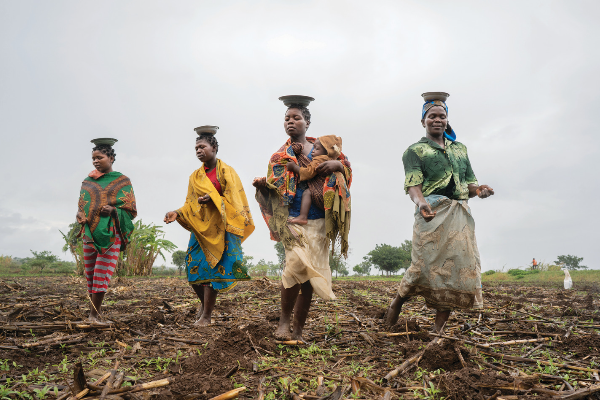The Australian Government will invest A$76.4 million for agricultural research and capacity development programs to strengthen climate resilience and food security in Africa.
Led by ACIAR, the 6-year Africa-Australia Partnership for Climate Responsive Agriculture (AAPCRA) will work with smallholder farmers to improve access to climate-smart innovations and safeguard food production as the impacts of climate change become more severe.
AAPCRA aims to also empower African research organisations through capacity development initiatives and work with policymakers to plan climate-responsive agriculture into the future.
Australia’s Minister for Foreign Affairs, Senator Penny Wong, announced the Partnership at the Commonwealth Heads of Government Meeting in Samoa on 24 October.
Minister Wong stated, ‘Through innovative partnerships and Australian know-how, we are helping build a future where communities are fed, economies are stronger and the environment is protected. It’s about securing a better, more resilient future for all.
‘This initiative will help address food insecurity in regions most exposed to climate change’s devastating impacts.’
Agriculture employs more than half of Africa’s working population and feeds hundreds of millions of people. In 2023, however, 868 million people were moderately or severely food-insecure, with figures to worsen as the effects of climate change disproportionately impact Africa and its smallholder farming communities.
Food security is closely tied to climate resilience and preparedness and is a critical priority for most African governments.
The African Union has highlighted the connection between science and agriculture to address increasingly complex challenges with innovation and collaborative research efforts.
ACIAR CEO Professor Wendy Umberger said that ACIAR is in a strong position to deliver the Partnership on behalf of the Australian Government.
‘The agricultural environments of Africa and Australia share many similar challenges, and Australia’s agricultural innovation system has expertise that is directly relevant to the African context. AAPCRA will leverage Australian innovation to enhance climate-smart, sustainable agricultural practices in Africa.’
‘For more than 4 decades, ACIAR has forged deep research partnerships across 12 countries in Eastern and Southern Africa, supporting projects that mobilised this expertise to deliver sustainable development outcomes in the region.’
‘AAPCRA will build on these partnerships and expand ACIAR’s work, forging new science collaborations with governments that support locally led development benefitting rural communities and the broader African society,’ said Prof Umberger.
AAPCRA will be delivered through flexible, multi-pronged approaches working with key partners, including national and regional research institutions, universities, and private sector entities.
In the first year, $11.9 million in funding will contribute to the development of new bilateral research projects and capacity development programs.








